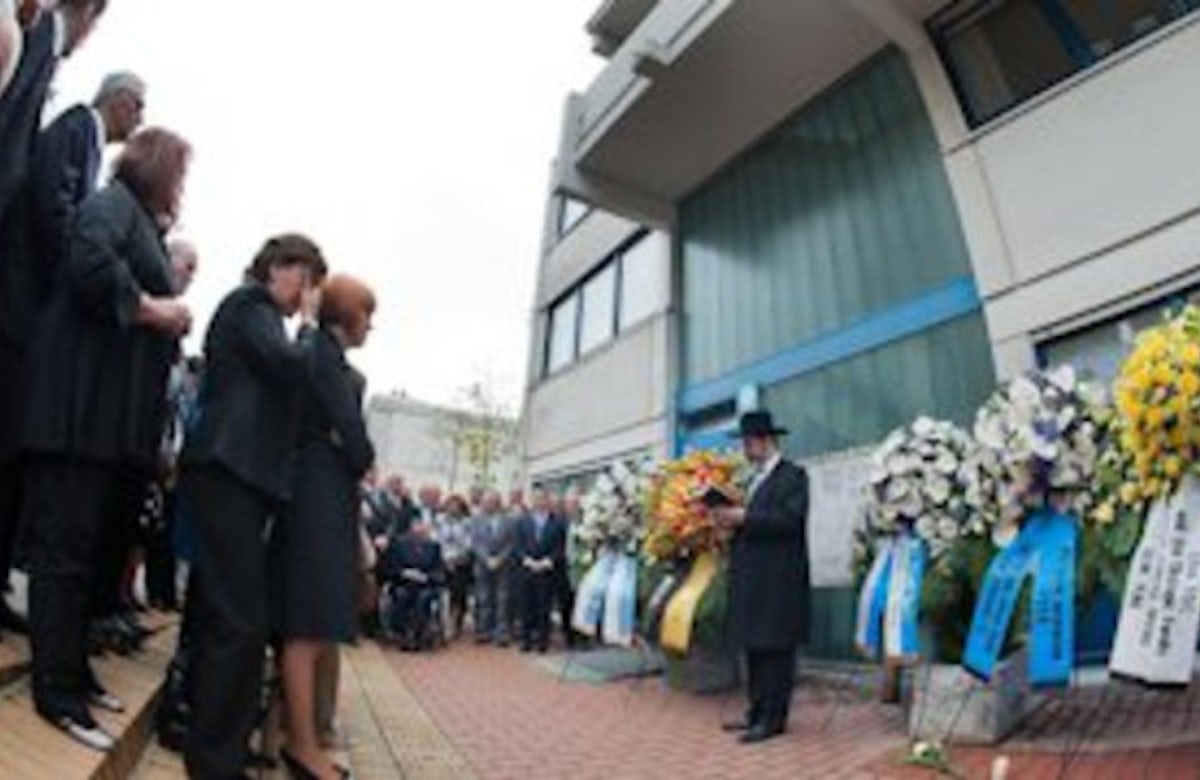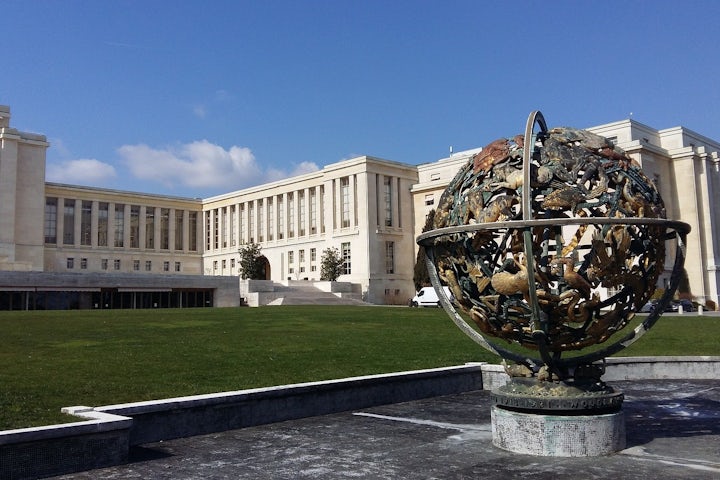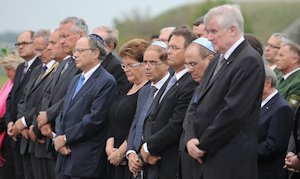 At a memorial held near Munich to honor the eleven Israeli victims of the 1972 terrorist attack during the Olympic Games, family members of the survivors and Jewish leaders again criticized the International Olympic Committee (IOC) for declining to commemorate the massacre during this summer's London Games. The commemoration took place Wednesday at the former air force Fürstenfeldbruck where 40 years ago most of the Israeli victims died amid gunfire during the botched German rescue attempt. Despite the solemnity and formality, speakers bluntly disagreed with one another in their judgment of the tragedy and its aftermath.
At a memorial held near Munich to honor the eleven Israeli victims of the 1972 terrorist attack during the Olympic Games, family members of the survivors and Jewish leaders again criticized the International Olympic Committee (IOC) for declining to commemorate the massacre during this summer's London Games. The commemoration took place Wednesday at the former air force Fürstenfeldbruck where 40 years ago most of the Israeli victims died amid gunfire during the botched German rescue attempt. Despite the solemnity and formality, speakers bluntly disagreed with one another in their judgment of the tragedy and its aftermath.
IOC President Jacques Rogge could not participate in the ceremony after undergoing a hip surgery.
Dieter Graumann, president of the Central Council of Jews in Germany, spoke bitterly of the lack of commemoration during the London Olympic Games. "There was not even one minute for remembrance. The IOC instantly and bluntly rebuffed this wish ... No-one will ever understand the frozen hearts of the IOC on this issue."
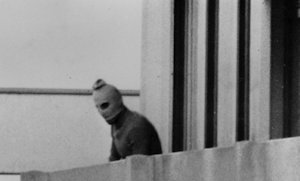 Likewise, Graumann’s predecessor, the Munich Jewish Community chairwoman and World Jewish Congress Vice President Charlotte Knobloch, called it "a blot on the Olympic movement."
Likewise, Graumann’s predecessor, the Munich Jewish Community chairwoman and World Jewish Congress Vice President Charlotte Knobloch, called it "a blot on the Olympic movement."
Graumann also assailed the late IOC president Avery Brundage, who had announced the continuation of the Munich Games after the killings. "I will never forget 'The Games must go on' of Avery Brundage. I understood the words as, 'Who cares that the Jews are gone?',” Graumann said.
Christian Ude, the mayor of Munich, said he shared the "bitterness" at the IOC's refusal to mark the massacre at the London Olympics, but defended Brundage's resumption of the Munich Games. "That was the only reaction possible. Every other reaction would have been the total triumph of the terrorists," said Ude. "It was not cold-heartedness."
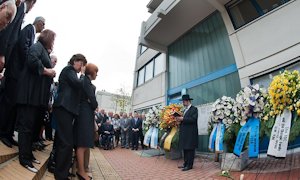 Some mourners from Israel who attended the open-air ceremony under gray skies were in Germany for the first time in four decades. Henry Herscovici, one of the Israeli athletes who survived the terrorist attack, told ARD television that sheer chance had saved him: "I and my friends are here. We had the chance to live." Several guests condemned the amateurism of the bungled rescue and the lack of frankness afterward about the mistakes.
Some mourners from Israel who attended the open-air ceremony under gray skies were in Germany for the first time in four decades. Henry Herscovici, one of the Israeli athletes who survived the terrorist attack, told ARD television that sheer chance had saved him: "I and my friends are here. We had the chance to live." Several guests condemned the amateurism of the bungled rescue and the lack of frankness afterward about the mistakes.
The hostage drama began on 5 September 1972 when eight Palestinian gunmen from the Black September terror group entered the Munich Olympic Village and seized members of the Israeli delegation.
 Two Israelis were murdered in the initial takeover. Nine more - including athletes, coaches and referees - were killed, along with the five gunmen and one German policeman. "The attackers could not have cared less which innocent people were sacrificed for their fanaticism," said Thomas Karmasin, a town official, in his welcome to the Israeli delegation. Later, as he closed the ceremony, Karmasin said the disagreements that had been voiced "show that the process of remembrance is still going on.”
Two Israelis were murdered in the initial takeover. Nine more - including athletes, coaches and referees - were killed, along with the five gunmen and one German policeman. "The attackers could not have cared less which innocent people were sacrificed for their fanaticism," said Thomas Karmasin, a town official, in his welcome to the Israeli delegation. Later, as he closed the ceremony, Karmasin said the disagreements that had been voiced "show that the process of remembrance is still going on.”

